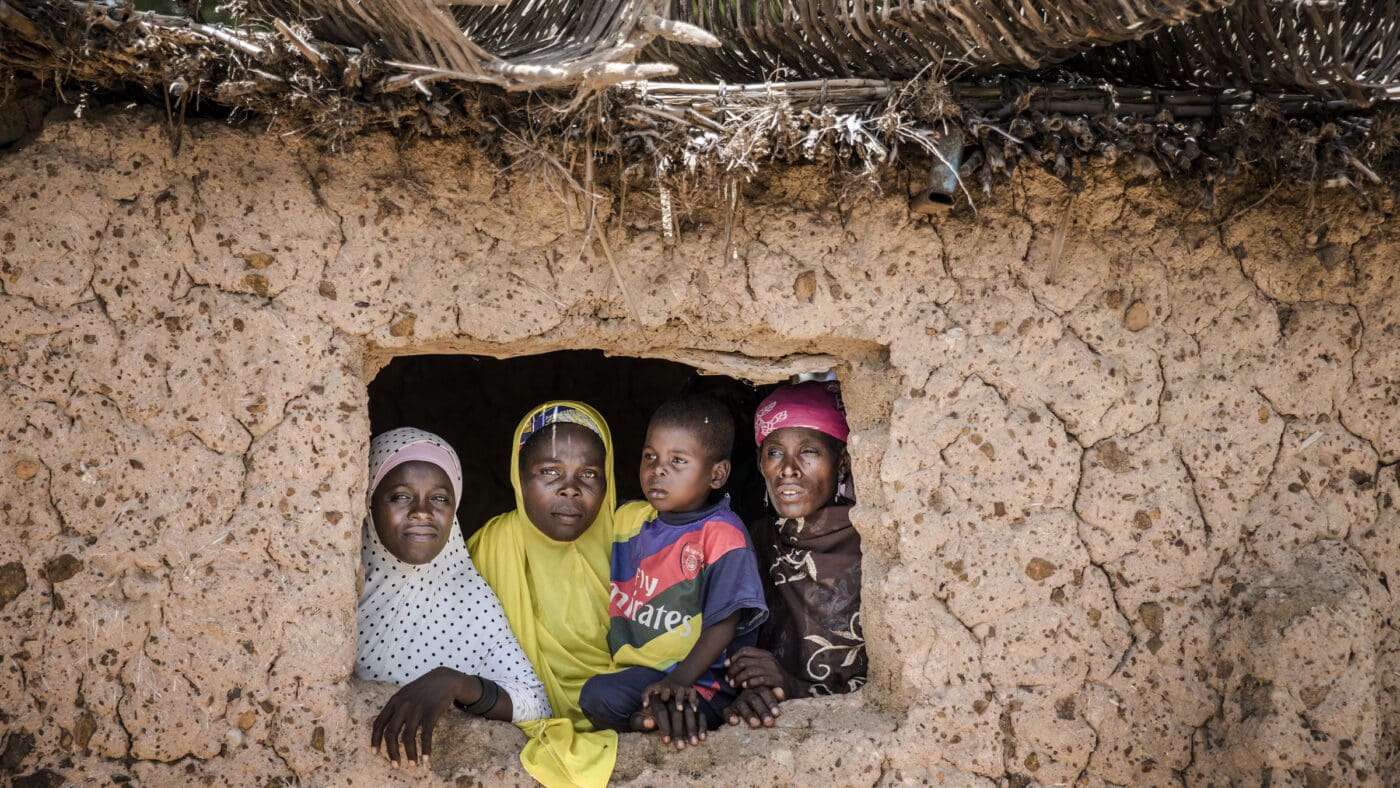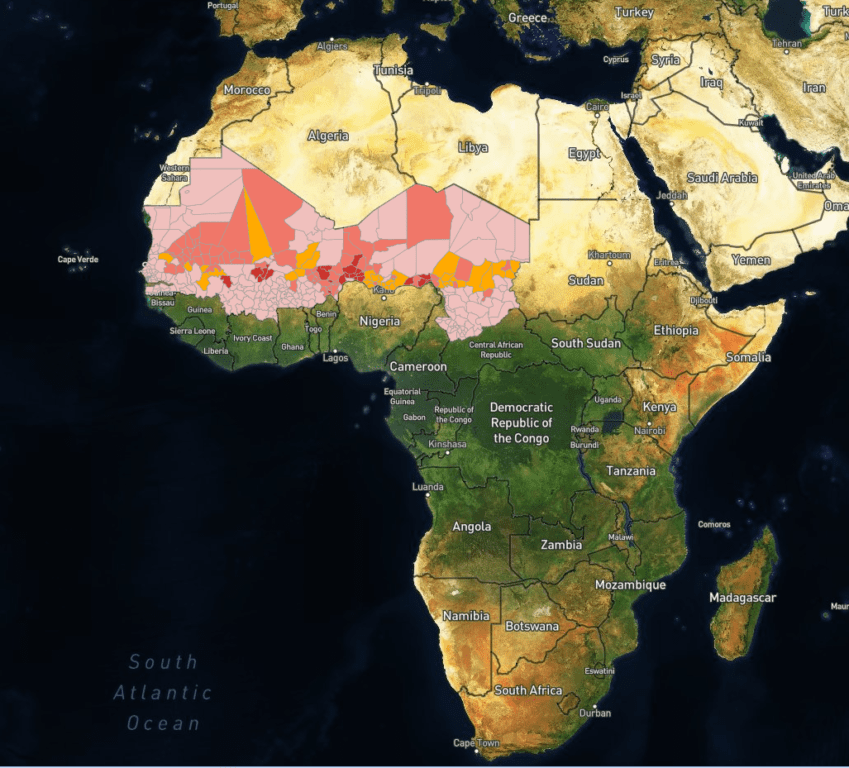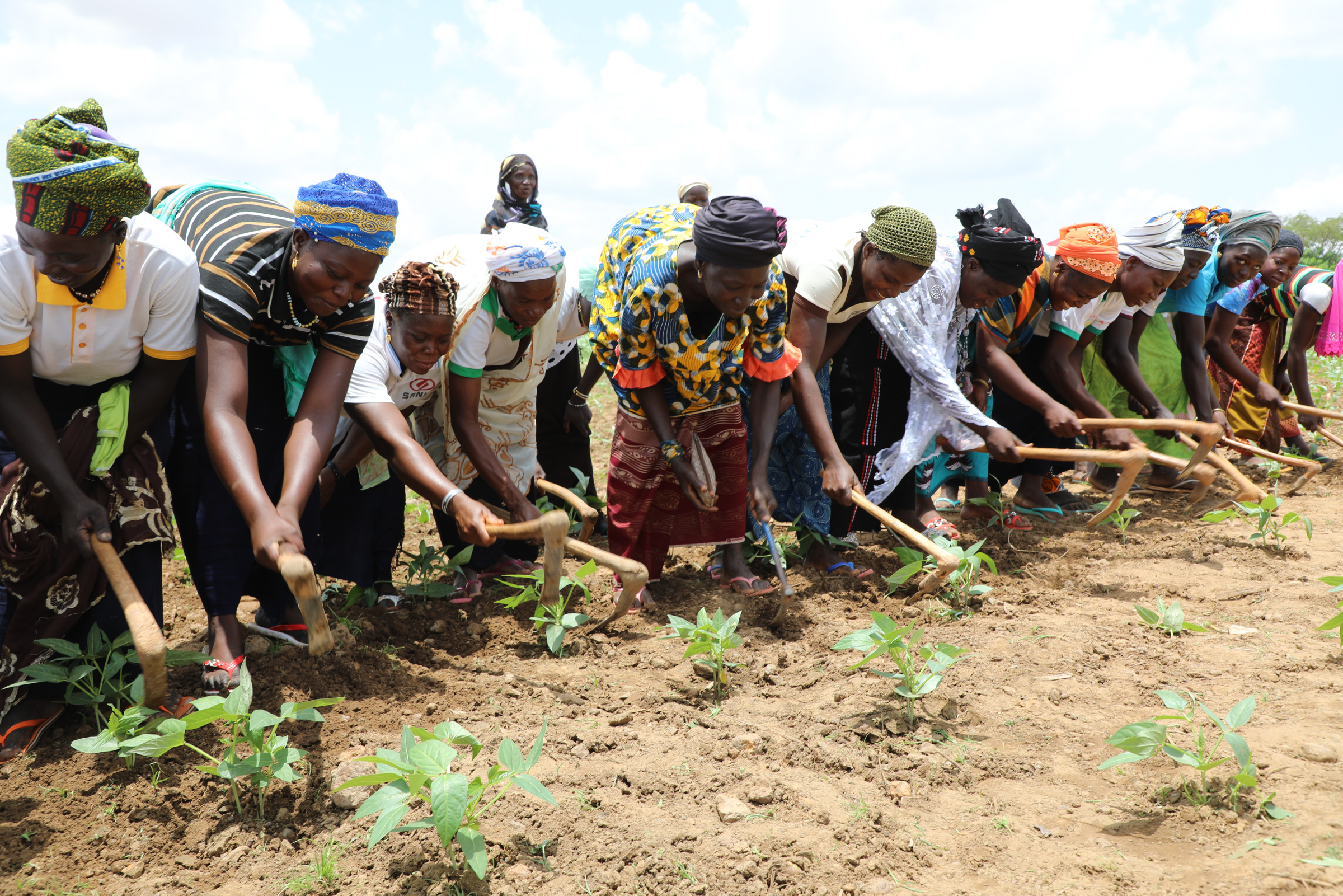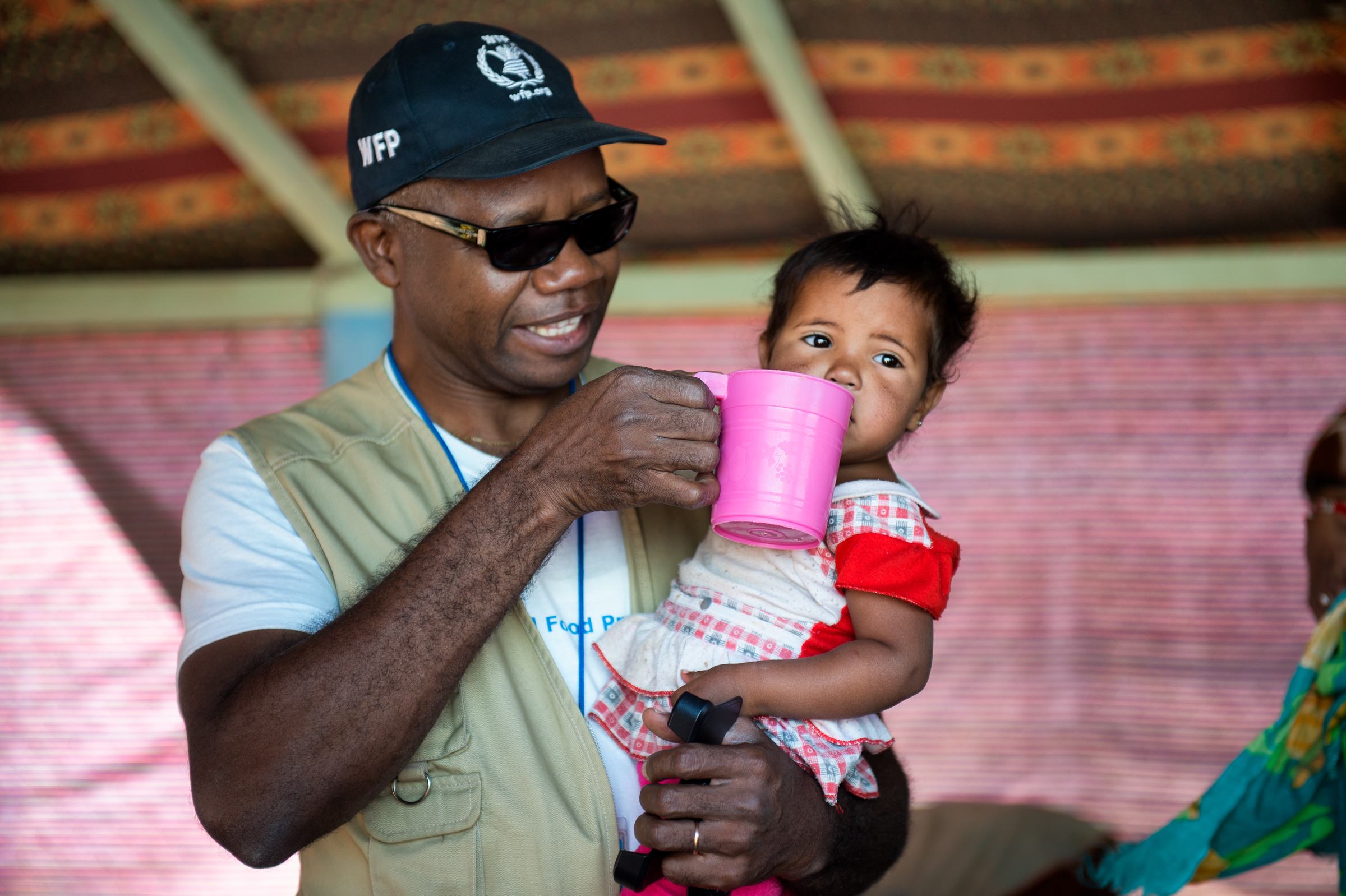
The Sahel
Rising Conflict and Climate
The Central Sahel – encompassing Burkina Faso, Mali and Niger – risks being consumed by a lethal mix of escalating armed conflict, the severe impacts of climate change and now the spread of COVID-19.
A Deadly Combo of Conflict & Climate Change
Families were just barely recovering from the 2018 food crisis, and now the number of internally displaced people has quadrupled to 1.6 million in the last year. On top of that, the coronavirus pandemic will strain the region to the breaking point, as its health systems are some of the weakest in the world.
people in Mali are facing starvation
of communities enrolled in WFP’s resilience programs no longer need lifesaving support in Niger
people are expected to face food insecurity in the Central Sahel
Millions of people across the region are in need of urgent, life-saving food.
- 2.1Min Burkina Faso
- 2Min Niger
- 1.3Min Mali

The Situation in the Sahel

Here, WFP operations also include a local yogurt production project, treatment and prevention of malnutrition, small-scale farmer support, and micro and macro-insurance policies.


In Mali, 34% of infant deaths are directly related to under-nutrition. WFP provides nutrition assistance to children under 5 who are acutely malnourished and to pregnant women and nursing mothers.

Survival in the Sahel
It’s always been an unforgiving landscape – hot, dry and sparse – but now families in the region are facing two growing threats at the same time: climate change and conflict. Boko Haram’s campaign of terror has displaced thousands of people as farmers and pastoralists clash over access to shrinking land. This Hacking Hunger episode takes you to Niger, where families are fighting for their lives.
WFP is going beyond food delivery in the Sahel.
It’s investing in activities that improve livelihoods, restore ecosystems, create jobs and build social cohesion. These projects aim to transform lives, end hunger, reduce unsafe migration, educate young people and help families overcome conflict and climate change.
